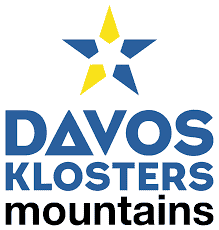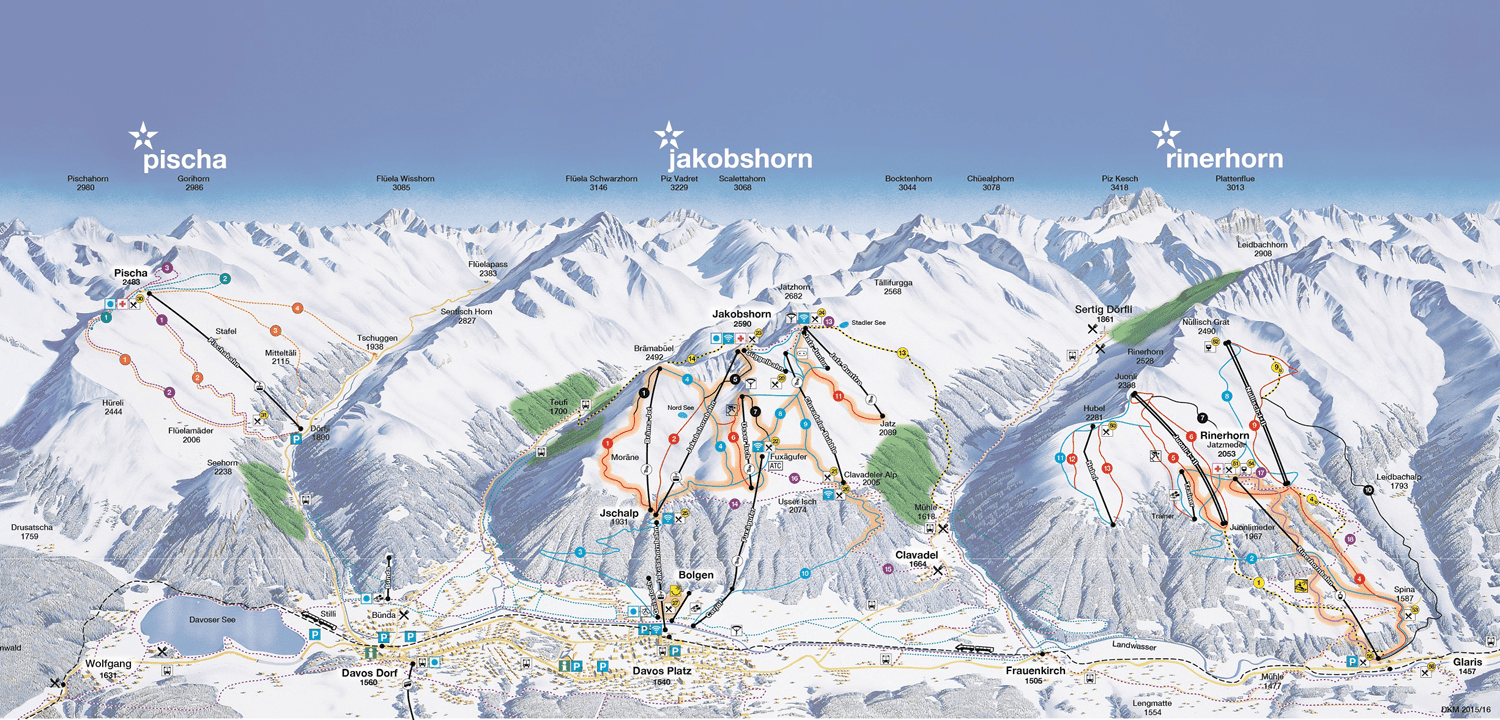IGEL Secure Endpoint OS
for Now and Next
IGEL is a transformative secure endpoint OS designed for SaaS, DaaS, VDI and secure browser environments. IGEL significantly reduces endpoint TCO and your endpoint attack surface.


Every year, several hundred thousand winter sport fans head for the famous Davos Klosters Mountains, one of the largest ski resorts in the Alps with over 300 km and 85 different pistes. The modern mountain railway facilities offered by Davos Klosters Bergbahnen AG provide quick and safe access to the many attractions in the Madrisa, Parsenn, Pischa, Jakobshorn and Rinerhorn regions. In order to make its IT even more reliable and efficient, the company is gradually standardizing its computer workstations.
IT plays a variety of roles in the mountain railway company’s operations. In addition to the workstations in the administrative department and in the hotels the company owns, numerous special solutions need to be maintained, for example, facility and access control systems or the ski line, race and piste guidance system. The company’s permanent staff includes around 140 IT users, and 300 or so seasonal workers. In order to prepare for and ensure trouble-free winter operations, the three-person IT team at Davos Klosters Bergbahnen is particularly busy during the autumn. “Given that our workload was increasing, we began thinking about how we could permanently minimize operational tasks about two years ago. We also wanted to have more time for strategic tasks in the future,” explained IT System Administrator Michael Frei. “We decided to gradually replace high-maintenance PCs with more robust and remote-administrable thin clients.”
The “Mountain Hotels” with around 1,900 beds were the ideal place for an initial, partial client standardization project. After all, the majority of PC users there already used centralized applications. Access to the small server farm was provided via the Citrix Receiver installed on Windows XP computers. Windows Server 2008 R2 is still used as the operating system for the Citrix XenApp provision solution. However, it is now virtualized using VMware vSphere. Even before the introduction of thin clients, IT centralization allowed the IT team to centrally manage standard applications such as e-mail, Office or the hotel administration system without having to touch the PCs. “Prior to the centralization and virtualization of IT, we often had to set up PC systems overnight so that they would be running again the next day,” recalled Michael Frei. “As a logical step following the introduction of Citrix Published Desktops, we now want to minimize end device management and repair costs with the help of thin clients.”
For the evaluation phase, the IT team chose thin client models from three manufacturers. In the end, the company opted for devices from IGEL Technology, the German market leader for thin and zero clients, which also include the IGEL Universal Management Suite (UMS) remote management solution. “After attending a course on UMS-based thin client configuration, I was well and truly convinced of the potential for savings,” said Michael Frei.
In order to ensure a high level of future-proofing, Davos Klosters Bergbahnen chose the particularly high-performance IGEL UD5 multiprotocol thin client which offers not only a dual core processor and two serial ports but also two digital video outputs. As a result, the device also addresses the need for dualview workstations which, according to Michael Frei, have been used more and more often in recent years. By choosing the IGEL Linux thin client operating system, the company deliberately opted for a particularly lean and license-free thin client operating system. Because the multiprotocol system allows access to various central IT and cloud environments and is updated at regular intervals by IGEL, Davos Klosters Bergbahnen do not have to commit themselves to a specific provision solution in the long term – unlike with proprietary zero client solutions.
The user experience was a further argument in favor of IGEL thin clients. “The old Windows PCs annoyed users with their long boot times of up to seven minutes,” said Michael Frei. “IGEL thin clients, on the other hand, are always ready for use in just a few seconds. The network connection to the server farm and the connection’s performance play a crucial role in the efficiency of our work. We’re always trying to improve it.” Accordingly, feedback from the first thin client users who mainly use Office and the hotel administration system in the hotels was positive. One example of a special application which is also used in the hotels is the door lock programming system which is controlled via the IGEL thin client’s serial interface.
Through their client standardization program, Davos Klosters Bergbahnen would ultimately like to see their IT costs more evenly distributed throughout the year, an achievement that would ease the financial stresses of a business whose budget is dependent on seasonal activity. “With each thin client workstation, we permanently reduce our management and support outlay,” said the system administrator.
According to Michael Frei, profile-based management is the most commonly used IGEL UMS function. The settings profiles which can be defined via the UMS Console are simply “moved” to the thin clients in the clear tree structure using drag-and-drop.
When it comes to remote configuration, Davos Klosters Bergbahnen manage with just one main profile which defines basic settings such as the keyboard layout or update path. Special settings, display resolutions, for example, are then allocated via sub-profiles. If the physical thin client is connected to the network, it configures itself automatically using its IP address. As a result, new or replacement devices can be set up and ready to go in just ten minutes. “Thanks to our basic Visit us online at igel.com IGEL is a registered trademark of IGEL Technology GmbH. All hardware and software names are registered trademarks of the respective manufacturers. Errors and omissions excepted. Subject to change without notice. © 12/2017 IGEL I 85-EN-24-1 I WEEE-Reg.-Nr. DE 79295479 I WEEE-Reg.-No. UK 5613471 knowledge of the IGEL UMS, the roll-out was very easy and quick,” said Michael Frei. “In order to replace the hotel PCs featuring Citrix Receiver with IGEL thin clients, we needed around two weeks including prep work, testing, setting up and dismantling the hardware. Since then, we’ve had clients in the hotels that no longer cause any problems.” The system administrator estimates that the IGEL UD models will have an operating life of around seven to ten years. By registering, the hardware warranty can be extended free of charge to five years.
Davos Klosters Bergbahnen are already planning to standardize the 60 or so IT workstations at the headquarters. In the accounting department, Michael Frei has successfully tested a USB barcode reader used in conjunction with the Linux-based thin clients. Before rolling it out, however, the company wants to wait for the next server version for Windows 10, because its improved USB redirection will help reduce server-side licensing costs. According to the systems administrator, the potential added value lies in the fact that numerous existing peripherals – scanners, cameras, USB sticks or an entry stylus for e-banking – could then be managed reliably even without Hyper-V. Michael Frei has already successfully tested the preliminary version of the new server OS from Microsoft in conjunction with IGEL thin clients.
On the basis of virtualization and IGEL thin clients, Davos Klosters Bergbahnen will be able to carry out their varied IT tasks with the same number of staff and at reasonable cost in the future too. This will be possible in spite of the fact that IT requirements are becoming increasingly complex. “Among other things, we’ll have more time for documentation, our network infrastructure and IT security,” said Michael Frei. “Our experiences with IGEL have confirmed that our decision in favor of continuous client standardization was the right one.”